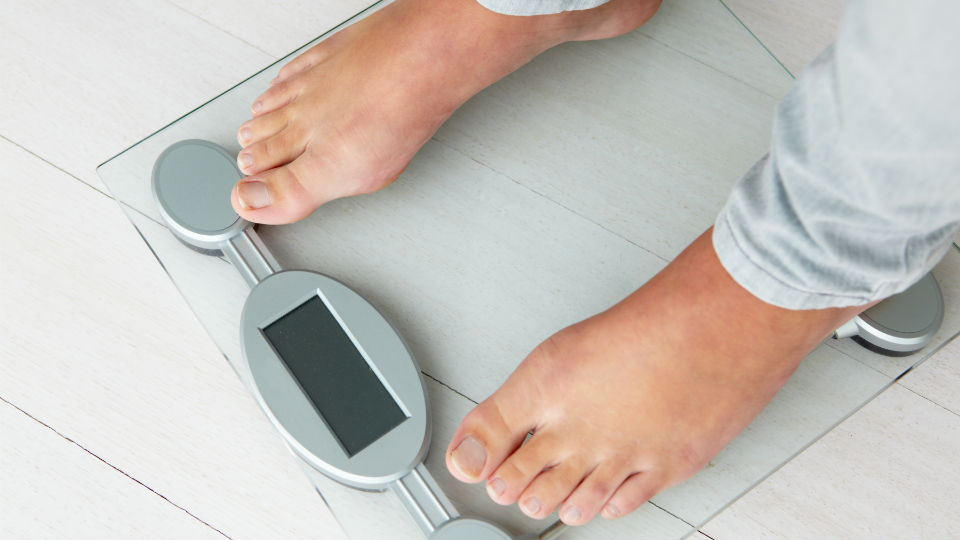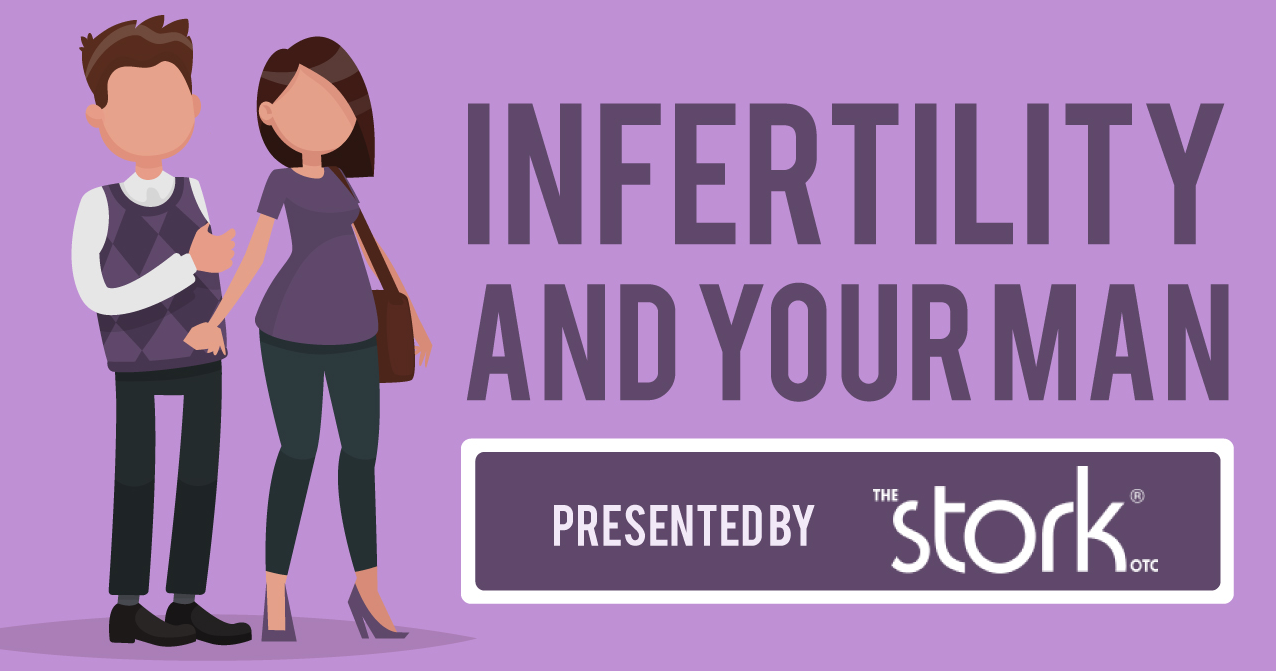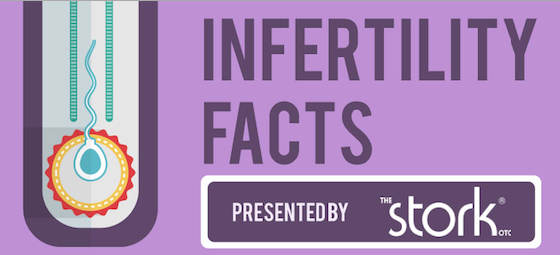 MonkeyBusiness Images/PhotoSpin
MonkeyBusiness Images/PhotoSpin
Sponsored By: The Stork® OTC
Did you know that with each ovulatory cycle, your chances of becoming pregnant are about 15-25 percent, depending on how perfectly everything lines up?
Once a couple actually begins making the effort to try to conceive, about 40 percent will conceive in the first three months, and 70 percent in the first six months, according to BabyMed.com. However, this is assuming that there are no major medical issues for the partners involved, that she understands the timing of her ovulation, and that the sperm are healthy and plentiful. It is important to note the impact age has on a couple trying to have a baby. After the age of 30, the ability to conceive falls with any cycle. According to BabyMed.com, chances of conception in your early 30s are only slightly lower than in your late 20s. But once you reach 35, there is a greater decline in fertility.
There are factors that decrease the chances of pregnancy such as smoking, lack of ovulation, age, alcohol, anatomical issues with the uterus, fallopian tubes and cervix, and weight.
A woman who is overweight or underweight could lower her chances of conception.
When looking at a body mass index chart, a healthy BMI is considered to fall between 19 and 24.9. Anything under 19 is defined as underweight while 25-29.9 is overweight, and anything above 30 is defined as obese.
The BMI chart is not perfect as it only takes into account height and weight; however, when someone is looking to become healthier to begin a family, it is a good starting place.
Body fat is important for the production of estrogen (besides the ovaries), therefore, if someone is too underweight, her body fat percentage drops down to a dangerous level, her estrogen levels go down, and often her menstrual cycles stop or become irregular. This can cause fertility problems.
The common reasons for low body fat are exercise induced weight loss, anorexia, and certain medical conditions such as hyperthyroidism. There is no clear definition of what constitutes an appropriate amount of body fat for a woman, however at least 15-20 percent is often reported.
Overweight women are at risk for estrogen excess and blood sugar/insulin dysregulation, which can affect ovulation and the menstrual cycle as a whole.
Another condition that can affect weight is polycystic ovarian syndrome, which many women are diagnosed with at some point in their lives. PCOS is often characterized by moderate to severe hair growth in unwanted places (hirsutism), menstrual disorders, and infertility.
Women with PCOS often have problems with their body’s use of insulin, causing weight gain, especially around the midsection, to be an issue. Fortunately, studies show that even losing 5 percent of your body fat if overweight can improve fertility chances.
This is important as the pregnancy rate declines by 4 percent for each point on the BMI chart above 29.
Talking about weight can be difficult, especially when already struggling to become pregnant. It may bring up an emotional response that may be uncomfortable to handle, or that may be something you have been trying to avoid.
Remember that the goal is to be as healthy as possible for your baby so that in turn, your baby is strong and healthy!
Ask your health care provider for help, and discuss whether or not weight is a concern in your case. Consider talking with a counselor to get to the root of everything. Work with a qualified nutritionist or dietitian in order to help you better understand proper nutrition, such as protein, fats, and carbohydrates along with vitamins and nutrients.
Are you having trouble with conceiving? If you are, whether it’s due to weight or other issues, you may want to try using an over-the counter tool like The Stork® OTC. The Stork OTC features cervical cap insemination to collect sperm and transfer it to the cervix. Cervical Cap Insemination can help couples with common fertility issues such as low sperm count or an unfavorable vaginal environment.
The Stork OTC can be purchased at several store locations. Enter code 10STORKOTC at check-out to save $10 on the product.
Sources:
What are the Odds of Conceiving and Having a Baby? BabyMed.com. http://www.babymed.com/getting-pregnant/what-are-the-odds-conceiving-conception
Centers for Disease Control and Prevention (CDC). (2015). About BMI for Adults. http://www.cdc.gov/healthyweight/assessing/bmi/adult_bmi/index.html
Centers for Disease Control and Prevention (CDC). (2015). Infertility FAQs. http://www.cdc.gov/reproductivehealth/Infertility/index.htm
Clark, A., Ledger, W., Galletly, C., Tomlinson, L., Blaney, F., Wang, X., and Norman, R. Weight loss results in significant improvement in pregnancy and ovulation rates in anovulatory obese women. Hum Reprod. 1995 Oct;10(10):2705-12. http://www.ncbi.nlm.nih.gov/pubmed/8567797
Kyrou, I., Randeva, H., Weicker, M.Clinical Problems Caused by Obesity. Endotext [Internet]. South Dartmouth (MA): MDText.com, Inc.; 2000-2014 Apr 24. http://www.ncbi.nlm.nih.gov/pubmed/25905207
Maimoun, L. GeorgopoulosN., Sultan, C. Endocrine disorders in adolescent and young female athletes: impact on growth, menstrual cycles, and bone mass acquisition. J Clin Endocrinol Metab. 2014 Nov;99(11):4037-50. doi: 10.1210/jc.2013-3030. Epub 2014 Mar 6 http://www.ncbi.nlm.nih.gov/pubmed/24601725
Rocca, M., Venturella, R., Mocciaro, R., Di Cello, A., Sacchinelli, A., Russo, V., Trapasso, S., Zullo, F., Morelli. M. Polycystic Ovary Syndrome: chemical pharmacotherapy. Expert Opin Pharmacother. 2015 Jun;16(9):1369-93 http://www.ncbi.nlm.nih.gov/pubmed/26001184
Silva, M., Paiva, T. Low energy availability and low body fat of female gymnasts before an international competition. Eur J Sports Sci. 2014 Oct 16:1-9. http://www.ncbi.nlm.nih.gov/pubmed/25318582
van der Steeg, J. et al. Obesity effects spontaneous pregnancy chances in subfertile, ovulatory women. Hum Reprod. 2008 Feb;23(2):324-8. http://www.ncbi.nlm.nih.gov/pubmed/18077317
Age and fertility: Getting pregnant in your 30s. http://www.babycenter.com/0_age-and-fertility-getting-pregnant-in-your-30s_1494695.bc
Reviewed June 1, 2015
by Michele Blacksberg RN
Edited by Jody Smith





Add a CommentComments
There are no comments yet. Be the first one and get the conversation started!